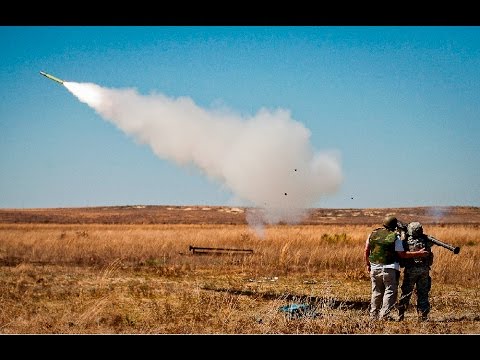
While the world focuses on the battle with the SARS-CoV-2 virus, the situation in Syria grinds on with the United States playing the role of spoiler.
Let’s start with this excerpt from a recent Hudson Institute livestream event entitled “Maximum Pressure on the Assad Regime For its Chemical Weapons Use and Other Atrocities“. In attendance, was Ambassador James Jeffery, Special Representative for Syria Engagement and Special Enjoy for the Global Coalition to Defeat ISIS. When asked the following about Syria and America’s role in the nation:
But the place itself, we have no interest in it. I mean, we have no major economic interests, right? The Assad regime does not pose a direct threat to the United States and so on, but it’s at the crossroads of all these other issues. So it’s hard to get the level of commitment right. Because to a lot of people, it just doesn’t seem to make sense.
…here is what Jeffrey had to say in response:
“…that’s why we are pursuing what we think is a smart policy, a very limited American military presence for a very specific goal, to go after ISIS. Supporting military operations of other countries, in various ways, Turkey, Israel, in focusing on economic and diplomatic pressure. Our military presence, while small is important to this whole overall calculation. So we urge the Congress, the American people, the president to keep these forces on. But again, this isn’t Afghanistan. This isn’t Vietnam. This isn’t a quagmire. My job is to make it a quagmire for the Russians.
Let’s look at one of the key issues affecting Syrians, a shortage of food. According to the Food Security Information Network’s 2020 Global Report on Food Crises, we find the following information about Syria’s food insecurity:
Acute malnutrition among children affected around 91,800 children with another 865,300 experiencing micronutrient deficiencies. Some regions were worse than others; in the governorates of Aleppo, Idlib and Hama, 31.9 percent of children between the ages of 6 months and 23 months received a minimum acceptable diet.
This chronic food shortage has led the Food and Agricultural Organization of the United Nations to assist Syria’s farmers to grow food as shown here:
Now, let’s look at two news items that didn’t get widespread coverage in the West:
1.) SANA May 17, 2020:
Click HERE to read more from this author.
You can publish this article on your website as long as you provide a link back to this page.

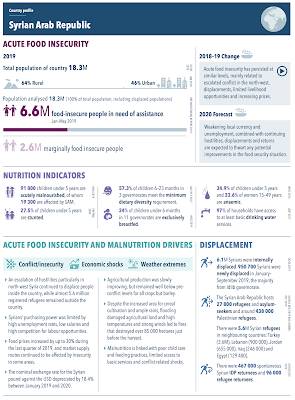
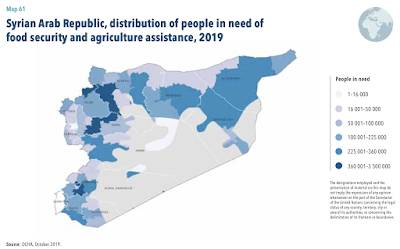
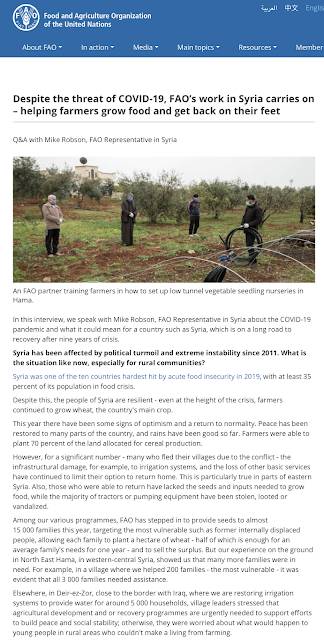
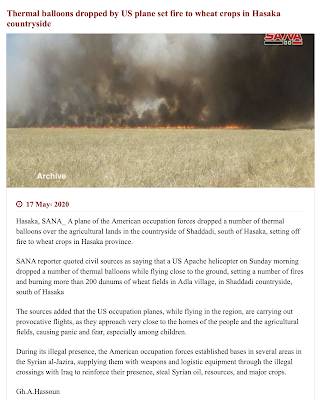
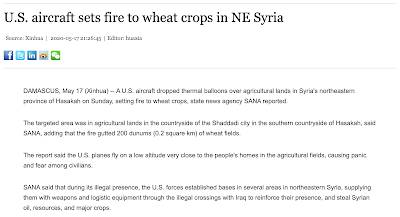

Be the first to comment